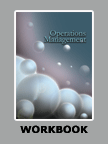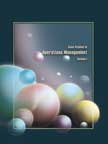Operations Management at Tata Motors
|
|
ICMR HOME | Case Studies Collection
Case Details:
Case Code : OPEA003
Case Length : 22 Pages
Period : 2003
Organization : Tata Motors
Pub Date : 2004
Teaching Note :Not Available
Countries : India
Industry : Automobile
To download Operations Management at Tata Motors case study
(Case Code: OPEA003) click on the button below, and select the case from the list of available cases:

Price:
For delivery in electronic format: Rs. 300;
For delivery through courier (within India): Rs. 300 +Shipping & Handling Charges extra
» Operations Case Studies
» Case Studies Collection
» ICMR HOME
» View Detailed Pricing Info
» How To Order This Case
» Business Case Studies
» Case Studies by Area
» Case Studies by Industry
» Case Studies by Company 
Please note:
This case study was compiled from published sources, and is intended to be used as a basis for class discussion. It is not intended to illustrate either effective or ineffective handling of a management situation. Nor is it a primary information source.
Chat with us

Please leave your feedback

|
|




<< Previous
Excerpts
Business Segments
|
Tata Motors had two main business segments - commercial vehicle business unit
and passenger car business unit.
Commercial Vehicle Business Unit (CVBU)
In 2003, Tata Motors' commercial vehicles sales grew by 27.3%. CVBU recorded
domestic sales of 1,06,194 units, a growth of 32% over 2001-02, maintaining its
overall CV market share at 56%. The company had a 67% share in the truck segment
and 51% in the bus segment. While Tata Motors lost some market share in the LCV
segment in the first half of the year, it recovered in the second half of the
year with the successful introduction of new models like Tata Safari Exi, and
Tata SFC 407 EX Turbo...
|

|
Manufacturing
Tata Motors had all along believed in developing strong in house design,
engineering, and manufacturing capabilities. Tata Motors performed a large
part of its manufacturing activities in-house. It had installed facilities
to manufacture engines, gearboxes and transmission mechanisms, body panels,
castings and forgings and important components & sub-assemblies. It even
manufactured its own machine tools, dies and fixtures, in its machine tools
division...
|
|
Product Development
Sumant Moolgaokar, Chairman Tata Motors, from 1970 to 1988, had played an
important role in shaping Tata Motors's R&D philosophy. Moolgaokar once
commented:
"We spend a lot of money, Rs.10 to Rs.12 Crores (US$7 to 8 million at
prevailing exchange rates) on R & D. It is our strong point...in a
manufacturing industry research and development is a series of mistakes by
which you benefit. It gives our people excitement and real knowledge. My
singular contribution has been to build a team. We regard our whole
operation as one big training facility"... |
Vendor Management
In 1997, Tata Motors promoted Tata Autocompsystems Limited (TACO) with the
objective of forming joint ventures with international auto component
manufacturers and giving a special thrust to vendor development...
Excerpts Contd... >>
|
|










